#Nepotism Controversy In Bollywood Industry
Explore tagged Tumblr posts
Text
Outcaste Nakshatras: The Outsiders (part 3)
Here's part 1 and part 2
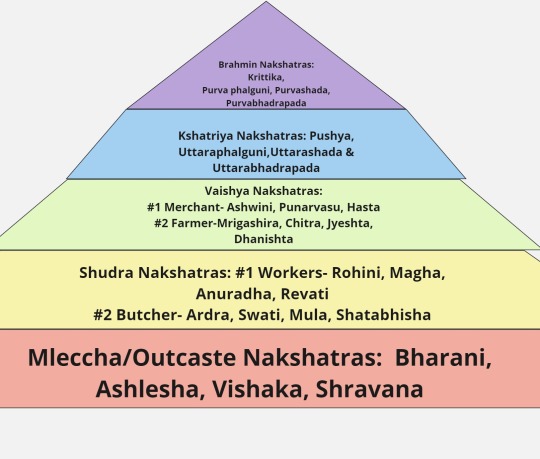
The more I study Mleccha nakshatra natives and the art they make, the more I understand how deeply lonely it is to have a Mleccha nak (Bharani, Ashlesha, Vishaka, Shravana) and I really feel for them. To live your whole life feeling misunderstood and othered is so difficult.
The movie Edward Scissorhands is a really good example of the "outcast" trope. The titular character is played by Johnny Depp who has Ashlesha Rising and his love interest is played by Winona Ryder who has Mercury (amatyakaraka) & Venus (atmakaraka) in Vishaka
I find Outcaste nak pairing very interesting because obviously you only feel like you belong/truly feel accepted in the presence of another Outcast.
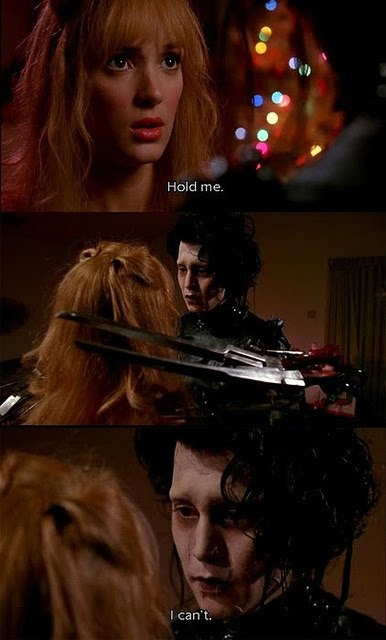
Sidharth Malhotra, Vishaka Moon is married to Kiara Advani, who has Mercury & Venus (atmakaraka) in Ashlesha (if you have 2 or more planets in the same nak that energy is very concentrated even if its not your big 3)

they're both known for being pretty low-key people which is unusual in Bollywood lmao
Sid is an "outsider" which is what we call non-nepo actors in India. imagine the extent of nepotism in cinema in India that its the exception to be an "outsider"lmao. anyway Sid is pretty reserved and introverted and is known for not fitting in with the Bollywood crowd. Kiara is also kinda like that I guess but idk too much about her personality. They both seem happy together tho
Kareena Kapoor, Shravana Moon is married to Saif Ali Khan, Ashlesha Sun & Shravana Moon

Kareena's parents are famous actors who are separated (her dad was misogynistic and abusive and didn't want women to act) and even tho she's a nepo baby she didn't grow up with the same privileges as others in her famous family. Her elder sister had to drop out of school to support the family by acting as they were raised by a single mom and had fallen on bad times. You can see how the "outcast" themes were present in Kareena's life even though she's a very privileged nepo baby
Saif is also a nepo baby (welcome to bollywood lol) but he married a much older actress when he was 21 and had two kids. they later got divorced and Saif received a ton of bad press for alleged adultery, not getting custody or visitation rights of the kids, not paying child support (the amount was absurdly high tbh) etc he didn't fit in with the other actors of his generation. The media & public went crazy when news of Saif & Kareena getting married came out bc Saif is a divorcee with 2 kids (this stuff is still taboo in India unfortunately) and Kareena is one of the most successful stars of her generation. But they've been married for 10+ yrs and have 2 kids and are as happy as ever.

Even Kareena's longterm ex-boyfriend, Shahid Kapoor was a Mleccha caste nak guy (he has Vishaka Moon)
Expanding on the outcast tropes, Shahid's parents separated when he was young and he saw little of his biological father. He had to work very hard for very long to break into the industry and even now, he's not really given his due as an actor.
Alia Bhatt, Shravana Rising is married to Ranbir Kapoor, Shravana Moon
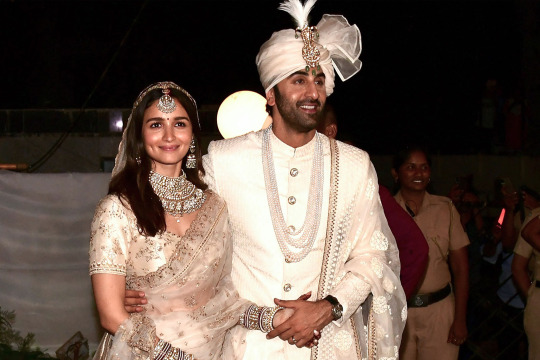
their marriage seems hella toxic to me ngl BUT they've both had similar childhoods.
Alia & Ranbir are both nepo babies (welcome to bollywood), Alia is like a tier 3 nepo (her father is a notoriously controversial filmmaker) whilst Ranbir is like a tier 1 nepo (he is a 4th generation actor from the biggest film family in India) however both their parents had unhappy marriages, and both of them had abusive fathers. trauma bonding, mayhaps? they're both also extremely close to their mothers as well (Moon dominant people often tend to be)
Its another example of Outcaste naks bonding over their shared experiences/feelings of being the outcast.

all members of Blackpink have an Outcaste nakshatra in their chart that is prominent in some way.
Jisoo- Shravana Moon, Venus in Vishaka (darakaraka), Ketu in Bharani
Rose- Venus conjunct Jupiter (debilitated) in Shravana
Jennie- Vishaka Moon, Mars in Shravana
Lisa- Jupiter in Shravana (debilitated), Swati Moon (Swati is a Shudra nak, which is the lowest caste so the themes are similar to that of outcaste naks)
This is interesting to me because BP is the biggest girl group of all time yet they are also probably disproportionately hated for things they cant even control. they were mismanaged by a shitty ass company with very few comebacks and barely got to display their true calibre as artists and their media interactions, promos, other activities etc were severely controlled and restricted. all of this is to say that despite being the most successful group their actual experiences are far from sunshine and roses. they were treated like outcasts by their company and the industry and fans. they trained for 4-6 years, enduring a brutal and toxic system, worked very hard with what they were given, with 0 creative liberty to come this far im glad theyre pursuing solo careers now and hope to see them thrive<333

the movie Lost in Translation is a good example of two outcasts/lonely people who find comfort in each other
Bill Murray is Shravana Moon and Scarlett Johansson is Vishaka Moon
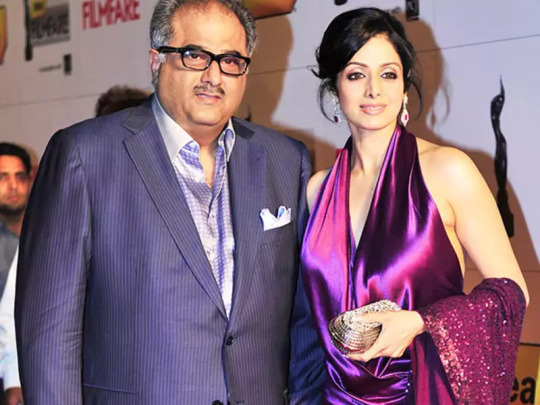
Sridevi, Ashlesha Sun & Rising and Boney Kapoor, Vishaka Sun & Mercury
So they had a really fcked up marriage that I won't get into but they were both people who felt like outcasts in their lives. Sridevi grew up with a stepfather and was pushed into acting by her mother when she was 3-4 years old (she's like an Indian Judy Garland tbh) who deprived her of formal education and a normal life so that she'd be the family cash cow. Being South Indian, she also found it hard to fit in among Bollywood folks as she initially spoke neither Hindi nor English. Boney's the ugly duckling of his family and his younger brother is one of the most famous/iconic actors ever, he had to become a movie producer since his brothers became actors and his father (who was a movie producer) thought it would be better if he stayed behind the scenes. themes of exclusion and outcast-ness crop up in their lives and in the lives of all the people I mention here.
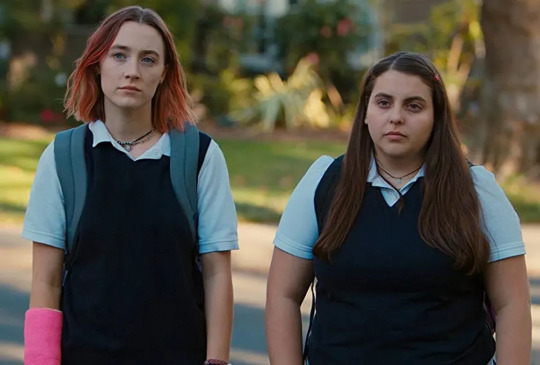
Lady Bird is a good example of a movie about a female teenage outcast. The titular character is played by Saoirse Ronan, who has Bharani Moon
Recently I came across the content creator, Alana Lintao who often makes shorts about social behaviour. This one in particular stood out to me because its literally about one person being excluded by a group of friends or being treated like "the other".
Alana plays the excluded friend in this short as well. She has Bharani Sun, Swati Moon and Mercury in Revati amatyakaraka (Swati & Revati are both Shudra naks)
Outcaste naks are vilified and crucified for mistakes others get away with.
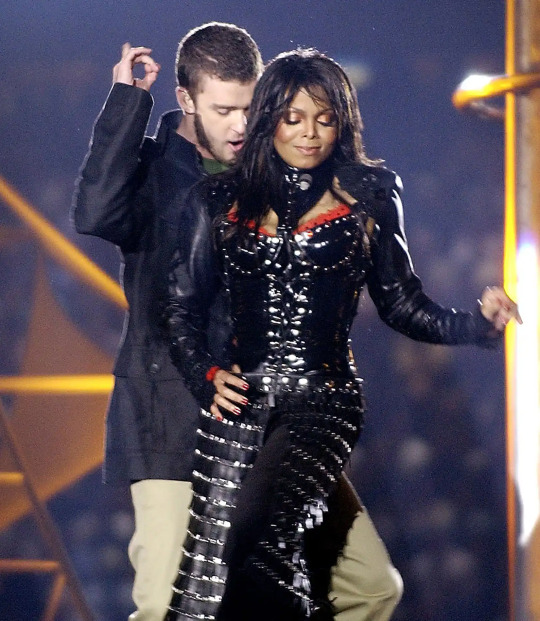
Janet Jackson, Vishaka Rising & Ketu
Janet's career took a hit and her life took a tumultuous turn after the Superbowl incident. She did not deserve all the vitriol she received then especially considering how so many others get away with wayyy worse

Jennie, Vishaka Moon gets hated on for absolutely nothing
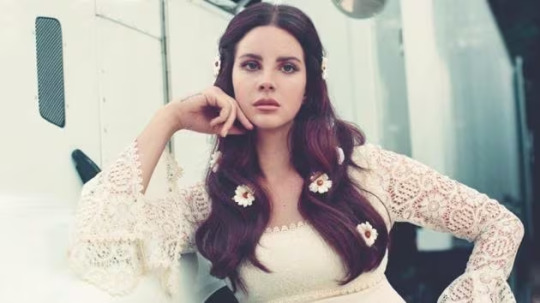
Lana Del Rey, Ashlesha Moon, Vishaka Rising (&stellium)
Lana does say dumb things from time to time but she gets soooo much unnecessary hate
I have noticed how Outcaste nakshatras often tend to have really difficult childhood experiences

Jeanette McCurdy- Ardra sun, Bharani Moon & Pushya Rising
Jeanette opens up about her abusive mother and terrible childhood in her memoir. I mention her other placements as well because I've noticed that both Ardra & Pushya natives also experience abuse in their early lives

Britney Spears, Shravana Moon
she has endured so much abuse from so many people including her family. i wish her peace.

Wheein, Vishaka Moon grew up with a single mother and later after she made her debut her estranged father tried to borrow money from people under her name?? there was a minor scandal about it many years ago. She also grew up quite lower middle class if not poor.
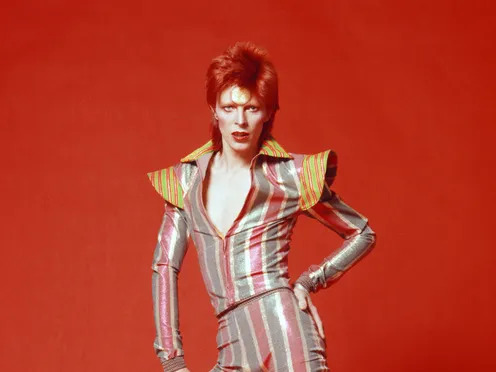
David Bowie, Shravana Rising
Bowie once said, "“It wasn’t a particularly happy childhood, my parents were cold emotionally. There weren’t many hugs. I always craved affection because of that.”
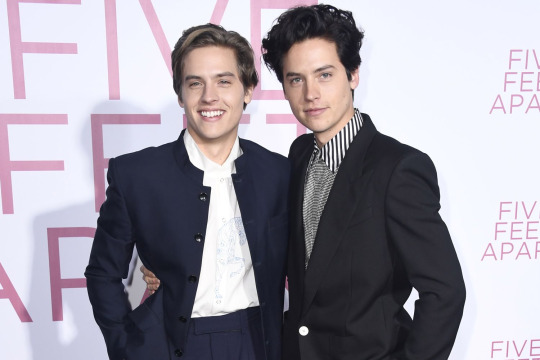
Cole & Dylan Sprouse, Ashlesha Sun
Speaking on the Call Her Daddy podcast, he explained that their mother's issues with mental health and addiction contributed to her being "financially the most irresponsible woman ever." He said that when their dad was given forced custody when the boys were 10, their mom had already spent everything they'd earned from their early acting jobs. Though their dad wanted them to be "normal kids," he ultimately decided that the boys' acting careers were a financial necessity.

Ariel Winter, Shravana Sun
Ariel Winter has spoken out about how acting wasn't her choice, but it was her mother's. Ariel shared that her mother, Crystal Workman, had dreams of being an actor herself. Ariel said that with Crystal as her stage mom, she dealt with a lot of abuse and exploitation.
Once Ariel's acting career began, she said her mom put her on a strict diet and neglected her education. Her mother also had her dress in outfits that sexualized her. Ariel claimed her mom put her in “the smallest miniskirts, sailor suits, low-cut things, the shortest dresses you’ve ever seen. People thought I was 24 when I was 12. If there was going to be a nude scene when I was that age, my mother would have a thousand percent said yes.”
Now Bollywood is an industry run by film dynasties, its very rare for someone from the outside to break in and make it big. Being an "Outsider" is very difficult, people bully you, try to sabotage your career, try to isolate you etc etc, needless to say its not for the faint of heart. So lets take a look at some of the most successful "Outsiders" in Bollywood who made it big without any family in the business

ofc we have to start with the most successful outsider of all time, Shahrukh Khan, Shravana Moon
he truly came from nothing (father died when he was a teenager, mother died before he made his debut, has a sister with special needs who he has taken care of his entire life) and became the biggest star in the world.
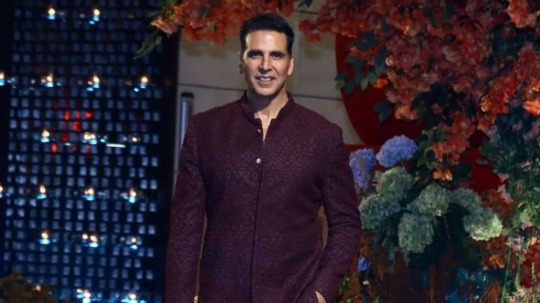
Akshay Kumar, Vishaka Moon, he was a martial artist, chef, waiter and worked numerous odd jobs before he started modelling in his late 20s and later started acting and today he has a net worth of $340 million

Anushka Sharma, Bharani Sun
her life is truly a case of being lucky af, she was a model and by the age of 19-20 she was cast in a film opposite Shahrukh Khan aka the biggest actor in the country produced by YRF, one of the biggest film production companies in India. its truly a fairy tale because neither can Anushka act nor is she gifted in any other way (bad dancer, heck she was even an awful model) but she's incredibly successful in every way and is now married to the (former) Captain of the Indian cricket team

Deepika Padukone, Shravana Rising
she is from a privileged background (her dad's a renowned badminton player) but she worked very very hard to get where she is today and has had more career longevity than just about any other actress.

Bipasha Basu & John Abraham, Bharani Moon
they were both a hot couple who were really popular in the 2000s
there are many other successful Outsiders but they don't have outcaste naks lol, these are the only ones i can think of rn :/
i hope this post was informative<33
#astrology notes#astrology observations#sidereal astrology#vedic astro notes#nakshatras#astro notes#vedic astrology#astrology#astroblr#astro observations#jyotish#shravana#bharani#vishaka#ashlesha
281 notes
·
View notes
Text
Hypocrisy and Nepotism: A Toxic Brew Fueling Bollywood Controversies
Bollywood, India's glamorous film industry, has always been a subject of fascination and scrutiny. In recent years, however, the industry has been rocked by a series of controversies that have exposed the deep-rooted problems of hypocrisy and nepotism that plague it.
Hypocrisy: The Double Standards of Bollywood
Bollywood has often been accused of hypocrisy, where celebrities preach one thing but practice another. Recent events have only served to highlight this issue.
Sushant Singh Rajput's Death and the Mental Health Debate: The tragic death of actor Sushant Singh Rajput in 2020 sparked a nationwide debate about mental health in the industry. Many celebrities expressed their condolences and spoke about the importance of mental well-being. However, critics pointed out the hypocrisy of the industry, which often subjects its artists to immense pressure and unrealistic expectations, contributing to their mental health struggles.
The #MeToo Movement and the Silence of the Stars: The #MeToo movement in India brought to light the pervasive issue of sexual harassment in Bollywood. While some celebrities bravely shared their stories, many others remained silent, raising questions about their commitment to the cause. The industry's selective outrage and the protection of powerful predators further exposed its hypocritical nature.
Nepotism: The Favored Children of Bollywood
Nepotism, the practice of favoring relatives or friends, has long been a contentious issue in Bollywood. The industry is often criticized for being a closed club where opportunities are primarily reserved for those with family connections.
The Rise of the 'Star Kids': The recent success of several "star kids," children of established Bollywood actors, has reignited the debate about nepotism. Critics argue that these individuals are often given preferential treatment, while talented outsiders struggle to get a foothold in the industry.
The Kangana Ranaut vs. Karan Johar Feud: The public feud between actress Kangana Ranaut and filmmaker Karan Johar has brought the issue of nepotism to the forefront. Ranaut has been vocal about her struggles as an outsider in the industry and has accused Johar of promoting nepotism.
The Impact of Hypocrisy and Nepotism
The prevalence of hypocrisy and nepotism in Bollywood has several negative consequences.
Stifling Talent: By favoring those with connections, the industry stifles the growth of talented outsiders who may never get the opportunity to showcase their skills.
Promoting Unfairness: Nepotism creates an unfair playing field where success is often determined by family background rather than merit.
Eroding Trust: The hypocrisy of celebrities and the industry's protection of powerful individuals erodes public trust and diminishes its credibility.
The Way Forward
Bollywood needs to address the issues of hypocrisy and nepotism if it wants to regain its credibility and foster a healthy and inclusive environment.
Transparency and Accountability: The industry needs to be more transparent in its operations and hold individuals accountable for their actions, regardless of their status or connections.
Equal Opportunities: Talent should be the primary criteria for success in Bollywood. The industry needs to create a level playing field where everyone has an equal opportunity to succeed.
Promoting Mental Health: The industry needs to prioritize the mental well-being of its artists and create a supportive environment where they feel safe to speak up about their struggles.
The recent controversies have exposed the dark underbelly of Bollywood, highlighting the urgent need for change. By addressing the issues of hypocrisy and nepotism, Bollywood can create a more just and equitable industry that truly celebrates talent and creativity.
#bollywood#alia bhatt#dailybollywoodqueens#desi#desiblr#amitabh bachchan#anushka sharma#nepotism#nepo baby#karan johar
1 note
·
View note
Text
"Entertainment Industry Was Looked Down By The Elite Educated World..."
Rana Daggubati Reacts To Bollywood vs South Debate & Nepotism(Photo Credit –Instagram) The conversations over nepotism and outsider have been heavily debated in the acting industry be it in any region of Indian cinema. Many actors have commented upon the topic and many have tried to escape to avoid any further controversies in their remarks. Adding to the list, Baahubali actor Rana Daggubati…

View On WordPress
0 notes
Photo

बॉलीवुड इंडस्ट्री में छिड़ी है नेपोटिज्म पर जंग, कंगना रनौत के इंस्टाग्राम पर बढ़े करीब 1.8 मिलियन फॉलोअर्स सुशांत सिंह राजपूत के निधन के बाद कंगना रनौत ने बॉलीवुड इंडस्ट्री के कई लोगों पर निशाना साधा था। इसके बाद सोशल मीडिया पर नेपोटिज्म को लेकर बहस शुरू हुई। कंगना रनौत हमेशा से ही सोशल मीडिया पर अपने... Source link
#Bollywood Industry#Hindi News#Hindustan#Kangana Ranaut Bollywood Industry#Kangana Ranaut Instagram Followers#Kangana Ranaut Instagram Followers Increased#Kangana Ranaut Instagram Followers Increased 1.8 Million#Kangana Ranaut On Nepotism#Nepotism Controversy#Nepotism Controversy In Bollywood Industry#Nepotism War In Bollywood Industry#News in Hindi#कंगना रनौत इंस्टाग्रा�� फॉलोअर्स#कंगना रनौत नेपोटिज्म#कंगना रनौत बॉलीवुड इंडस्ट्री#नेपोटिज्म कॉन्ट्रोवर्सी#नेपोटिज्म पर छिड़ी है बॉलीवुड इंडस्ट्री में जंग#बॉलीवुड इंडस्ट्री#हिन्दुस्तान
0 notes
Link
Netflix and Amazon gave daring Indian filmmakers hope. Now that's turning to fear Even with two major, critically acclaimed films under her belt — “Kal: Yesterday and Tomorrow,” a thriller she wrote and directed, and “Hazaaron Khwaishein Aisi,” a political drama that won Bollywood’s equivalent of an Academy Award — the work just wouldn’t come. Since then, the Mumbai-based filmmaker says she has “been inundated with work.” Her film “Guilty” — a social issues drama about a rape investigation — was released by the streaming giant in 2020. In the same year, Disney+ Hotstar released her 8-part comedy series “Hundred.” Now, increasing government scrutiny of these more provocative projects and other groundbreaking stories is worrying Narain and many other creators in Mumbai, the home of India’s film industry. Original shows on Amazon Prime and Netflix have lately drawn ire from Indian politicians and regular citizens who consider these films and TV shows insensitive to cultural and religious beliefs. Police complaints have also piled up against creators and company executives, and some of the offenses they have been accused of — including committing “deliberate or malicious acts, intended to outrage religious feelings” — carry prison terms of up to three years, a fine, or both. And, in recent months, Prime Minister Narendra Modi’s government has announced new rules and guidelines for streaming services, though no explicit bans on particular themes. India’s creative community now fears that streaming services may buckle under the pressure, and refrain from touching stories that are even remotely controversial. It’s a troubling sign for an industry that had just begun experimenting with new forms of storytelling and producing shows capable of worldwide appeal. Just last year, Delhi Crime, a Netflix drama series based on the real rape and murder of a 23-year-old student in India’s capital, won an international Emmy. Start of a new era The arrival of Amazon (AMZN) and Netflix in India has been a boon to directors and writers like Narain, who had long languished on the fringes of Bollywood — an industry often accused of nepotism. Several filmmakers told CNN Business they thought the international streaming services introduced a degree of professionalism. “I co-directed a film called ‘House Arrest,’ which was released on Netflix in 2019, and everyone on set was thrilled just because they were getting paid on time,” said Samit Basu, novelist and filmmaker. He added that the culture changed to one where rigorous research and development were commonplace. “A lot of book rights were auctioned and writers’ rooms started happening,” Basu added. “Earlier, people in the film industry hardly ever read books.” More importantly, these companies made it possible for storytellers to explore subjects that had previously been untouched. Bollywood films are hamstrung by the Central Board of Film Certification, which forces filmmakers to remove everything from kisses and swear words to shots of drug abuse — once even from a film about drug abuse. Indian TV, which is also regulated by the government, is dominated by often regressive stories about housewives and mothers-in-law. Streaming content broke that mold because it was, until recently, unregulated by the government. “Sacred Games,” Netflix’s first original series in the country, shocked Indian viewers by casting well-known actors in a show that liberally made use of abusive language, violence and nudity. The program was compared to “Narcos,” Netflix’s hit American drama about Colombian cocaine kingpin Pablo Escobar. Amazon’s first series in the country, meanwhile, was “Inside Edge” — a show about the dark underbelly of cricket, a sport that is worshipped in India. Both “Inside Edge and “Sacred Games” were nominated for International Emmy awards. Several other shows on the platforms have also taken an unflinching look at subjects ranging from politics to female sexuality, which Bollywood and Indian TV have typically shied away from. “I am glad I did my film for Netflix because they did not dilute anything,” said Narain, referring to her project “Guilty.” When a kiss offends Politically-fueled uproar over shows on these international video platforms isn’t new. “Sacred Games,” which was released in 2018, managed to offend lawmakers from Modi’s Bharatiya Janata Party (BJP) and the opposition Congress Party. In 2019, a politician from the BJP filed a police complaint against the creator of the show for a “scene which disrespects Sikh religious symbol Kada.” But lately, the political and public outrage has reached a crescendo. Netflix faced boycott calls in November over “A Suitable Boy,” an adaptation of the award-winning novel of the same name by author Vikram Seth. Some viewers and BJP politicians were angered by a scene that depicts a Hindu man and a Muslim woman kissing in a temple, which led to complaints against Netflix executives. The company did not respond to CNN Business’s request for an update on these complaints. In January, Amazon’s political drama “Tandav” — which has been likened to the Netflix series “House of Cards” — faced a backlash from politicians who said they complained to the police about the company and the show’s creators for depicting Hindu Gods in a derogatory way. Aparna Purohit, the Head of India Originals at Amazon Prime Video, was questioned by police for several hours. Both Amazon and the show’s creators issued an apology. “We respect our viewers’ diverse beliefs and apologize unconditionally,” Amazon said in a statement. That same month, an Indian journalist filed a police complaint against Amazon’s crime series “Mirzapur” for “showing the city of Mirzapur in a bad light,” according to media reports. And this month, the National Commission for the Protection of Child Rights asked Netflix to stop streaming “Bombay Begums,” a drama about five ambitious women, because of its “inappropriate portrayal” of children, who were shown sniffing cocaine. The government has also taken official action to rein in streaming services and the content they provide. Last November, the Information and Broadcasting Ministry brought the previously unregulated services within its scope. Three months later, the government announced new rules for online content, including a requirement for video platforms to classify their content into age-based categories. They also have to appoint a “grievance redressal officer” in India who has to address every complaint made against the company within 15 days. While activists have criticized these rules, the government said the video streaming services must be “responsible and accountable” for their content. “India is tolerant and will remain tolerant,” India’s technology minister Ravi Shankar Prasad said on Thursday. “But the limits of tolerance and standards of tolerance should not be judged on the creating freedom or abuse of a particular producer of an OTT platform.” The new rules do not explicitly ban any type of content — but the vague scope of the regulations is also exactly why filmmakers who spoke to CNN Business were troubled. A wide range of topics have already been targeted with complaints and outrage, leaving creators second-guessing and self-censoring. “In India, anyone can have a problem with anything. In India, people confuse what a character is saying with what the writer believes,” said Sumit Purohit, who wrote for “Inside Edge” and “Scam 1992,” a web series on Sony’s streaming service SonyLiv. “How can you make a series like the ‘Mindhunter’ here?” he asked, referring to a Netflix show about serial killers. Purohit also described the impact of self-censorship on a writer, saying that it “makes you angry, frustrated,” because “that is not how any art is created.” The backlash from all sides — politicians, journalists, national agencies and even regular citizens — is hard for American services to fight in India, a key overseas market, as they are wary of getting on the wrong side of the government. Netflix CEO Reed Hastings said in 2018 his “next 100 million” users would come from India. In Dec 2019, he said his company would spend 30 billion rupees ($413 million) on original content over the next two years in India. And, Amazon’s Jeff Bezos has said that “it [Prime Video] is doing well everywhere but there’s nowhere it is doing better than in India.” A chilling effect There are already some signs that the industry might be regressing. Earlier this month, Reuters reported, citing unnamed sources, that “companies like Amazon’s Prime Video and Netflix are inspecting planned shows and scripts, with some even deleting scenes that could be controversial.” A few days later, the Indian financial newspaper Mint reported, citing anonymous sources, that Amazon had canceled the second season of the crime series “Paatal Lok,” which was praised for its portrayal of corruption and caste discrimination. Amazon and Netflix declined to comment on the reports. “Nothing that has politics in it is being touched [commissioned] right now,” said Josy Joseph, an investigative journalist whose media platform is collaborating with the creator of “Sacred Games” to make a series about Tihar Jail, India’s largest prison. “There is a massive depression that has set into the creative minds of Mumbai,” he said. “They are scared and writers are winding down to mediocrity. They are going back to telling saas-bahu stories or conservative romance.” (Saas-bahu means “mother-in-law and daughter-in-law” in Hindi.) While production isn’t slowing down — Netflix has announced 40 new shows and movies from India — Basu worries that production houses in the future may go for content that is “unambiguously safe” and “assumes that the audience’s intelligence is zero.” Just weeks after Prime Video executive Purohit was questioned by police, the platform announced it would produce its first film in Bollywood, the stronghold of traditional Indian movie making. “Ram Setu” will “highlight our Indian heritage,” said Vijay Subramanium, the head of content at Amazon Prime Video India, in a statement. Some filmmakers are less pessimistic about their creative freedom. Karan Anshuman, one of the creators of “Mirzapur” and “Inside Edge,” said he felt it was “too early to react” to the heightened scrutiny, adding that he would rather “wait and watch.” But film writer Arpita Chatterjee, said it is too late to rein in the Indian filmmaking community now. “We can’t just go back 20 years,” Chatterjee said. “The world is at a different place and storytellers are at a different place. You can’t just put the genie back in the bottle.” Source link Orbem News #Amazon #daring #Fear #filmmakers #gave #Hope #Indian #Netflix #turning
5 notes
·
View notes
Text
Netflix and Amazon gave daring Indian filmmakers hope. Now that's turning to fear
New Post has been published on https://appradab.com/netflix-and-amazon-gave-daring-indian-filmmakers-hope-now-thats-turning-to-fear/
Netflix and Amazon gave daring Indian filmmakers hope. Now that's turning to fear
Even with two major, critically acclaimed films under her belt — “Kal: Yesterday and Tomorrow,” a thriller she wrote and directed, and “Hazaaron Khwaishein Aisi,” a political drama that won Bollywood’s equivalent of an Academy Award — the work just wouldn’t come.
Since then, the Mumbai-based filmmaker says she has “been inundated with work.” Her film “Guilty” — a social issues drama about a rape investigation — was released by the streaming giant in 2020. In the same year, Disney+ Hotstar released her 8-part comedy series “Hundred.”
Now, increasing government scrutiny of these more provocative projects and other groundbreaking stories is worrying Narain and many other creators in Mumbai, the home of India’s film industry.
Original shows on Amazon Prime and Netflix have lately drawn ire from Indian politicians and regular citizens who consider these films and TV shows insensitive to cultural and religious beliefs.
Police complaints have also piled up against creators and company executives, and some of the offenses they have been accused of — including committing “deliberate or malicious acts, intended to outrage religious feelings” — carry prison terms of up to three years, a fine, or both. And, in recent months, Prime Minister Narendra Modi’s government has announced new rules and guidelines for streaming services, though no explicit bans on particular themes.
India’s creative community now fears that streaming services may buckle under the pressure, and refrain from touching stories that are even remotely controversial. It’s a troubling sign for an industry that had just begun experimenting with new forms of storytelling and producing shows capable of worldwide appeal. Just last year, Delhi Crime, a Netflix drama series based on the real rape and murder of a 23-year-old student in India’s capital, won an international Emmy.
Start of a new era
The arrival of Amazon (AMZN) and Netflix in India has been a boon to directors and writers like Narain, who had long languished on the fringes of Bollywood — an industry often accused of nepotism. Several filmmakers told Appradab Business they thought the international streaming services introduced a degree of professionalism.
“I co-directed a film called ‘House Arrest,’ which was released on Netflix in 2019, and everyone on set was thrilled just because they were getting paid on time,” said Samit Basu, novelist and filmmaker. He added that the culture changed to one where rigorous research and development were commonplace.
“A lot of book rights were auctioned and writers’ rooms started happening,” Basu added. “Earlier, people in the film industry hardly ever read books.”
More importantly, these companies made it possible for storytellers to explore subjects that had previously been untouched.
Bollywood films are hamstrung by the Central Board of Film Certification, which forces filmmakers to remove everything from kisses and swear words to shots of drug abuse — once even from a film about drug abuse. Indian TV, which is also regulated by the government, is dominated by often regressive stories about housewives and mothers-in-law.
Streaming content broke that mold because it was, until recently, unregulated by the government. “Sacred Games,” Netflix’s first original series in the country, shocked Indian viewers by casting well-known actors in a show that liberally made use of abusive language, violence and nudity. The program was compared to “Narcos,” Netflix’s hit American drama about Colombian cocaine kingpin Pablo Escobar.
Amazon’s first series in the country, meanwhile, was “Inside Edge” — a show about the dark underbelly of cricket, a sport that is worshipped in India. Both “Inside Edge and “Sacred Games” were nominated for International Emmy awards.
Several other shows on the platforms have also taken an unflinching look at subjects ranging from politics to female sexuality, which Bollywood and Indian TV have typically shied away from. “I am glad I did my film for Netflix because they did not dilute anything,” said Narain, referring to her project “Guilty.”
When a kiss offends
Politically-fueled uproar over shows on these international video platforms isn’t new. “Sacred Games,” which was released in 2018, managed to offend lawmakers from Modi’s Bharatiya Janata Party (BJP) and the opposition Congress Party. In 2019, a politician from the BJP filed a police complaint against the creator of the show for a “scene which disrespects Sikh religious symbol Kada.”
But lately, the political and public outrage has reached a crescendo.
Netflix faced boycott calls in November over “A Suitable Boy,” an adaptation of the award-winning novel of the same name by author Vikram Seth. Some viewers and BJP politicians were angered by a scene that depicts a Hindu man and a Muslim woman kissing in a temple, which led to complaints against Netflix executives. The company did not respond to Appradab Business’s request for an update on these complaints.
In January, Amazon’s political drama “Tandav” — which has been likened to the Netflix series “House of Cards” — faced a backlash from politicians who said they complained to the police about the company and the show’s creators for depicting Hindu Gods in a derogatory way. Aparna Purohit, the Head of India Originals at Amazon Prime Video, was questioned by police for several hours.
Both Amazon and the show’s creators issued an apology. “We respect our viewers’ diverse beliefs and apologize unconditionally,” Amazon said in a statement.
That same month, an Indian journalist filed a police complaint against Amazon’s crime series “Mirzapur” for “showing the city of Mirzapur in a bad light,” according to media reports. And this month, the National Commission for the Protection of Child Rights asked Netflix to stop streaming “Bombay Begums,” a drama about five ambitious women, because of its “inappropriate portrayal” of children, who were shown sniffing cocaine.
The government has also taken official action to rein in streaming services and the content they provide. Last November, the Information and Broadcasting Ministry brought the previously unregulated services within its scope.
Three months later, the government announced new rules for online content, including a requirement for video platforms to classify their content into age-based categories. They also have to appoint a “grievance redressal officer” in India who has to address every complaint made against the company within 15 days.
While activists have criticized these rules, the government said the video streaming services must be “responsible and accountable” for their content.
“India is tolerant and will remain tolerant,” India’s technology minister Ravi Shankar Prasad said on Thursday. “But the limits of tolerance and standards of tolerance should not be judged on the creating freedom or abuse of a particular producer of an OTT platform.”
The new rules do not explicitly ban any type of content — but the vague scope of the regulations is also exactly why filmmakers who spoke to Appradab Business were troubled. A wide range of topics have already been targeted with complaints and outrage, leaving creators second-guessing and self-censoring.
“In India, anyone can have a problem with anything. In India, people confuse what a character is saying with what the writer believes,” said Sumit Purohit, who wrote for “Inside Edge” and “Scam 1992,” a web series on Sony’s streaming service SonyLiv. “How can you make a series like the ‘Mindhunter’ here?” he asked, referring to a Netflix show about serial killers.
Purohit also described the impact of self-censorship on a writer, saying that it “makes you angry, frustrated,” because “that is not how any art is created.”
The backlash from all sides — politicians, journalists, national agencies and even regular citizens — is hard for American services to fight in India, a key overseas market, as they are wary of getting on the wrong side of the government.
Netflix CEO Reed Hastings said in 2018 his “next 100 million” users would come from India. In Dec 2019, he said his company would spend 30 billion rupees ($413 million) on original content over the next two years in India. And, Amazon’s Jeff Bezos has said that “it [Prime Video] is doing well everywhere but there’s nowhere it is doing better than in India.”
A chilling effect
There are already some signs that the industry might be regressing. Earlier this month, Reuters reported, citing unnamed sources, that “companies like Amazon’s Prime Video and Netflix are inspecting planned shows and scripts, with some even deleting scenes that could be controversial.”
A few days later, the Indian financial newspaper Mint reported, citing anonymous sources, that Amazon had canceled the second season of the crime series “Paatal Lok,” which was praised for its portrayal of corruption and caste discrimination.
Amazon and Netflix declined to comment on the reports.
“Nothing that has politics in it is being touched [commissioned] right now,” said Josy Joseph, an investigative journalist whose media platform is collaborating with the creator of “Sacred Games” to make a series about Tihar Jail, India’s largest prison.
“There is a massive depression that has set into the creative minds of Mumbai,” he said. “They are scared and writers are winding down to mediocrity. They are going back to telling saas-bahu stories or conservative romance.” (Saas-bahu means “mother-in-law and daughter-in-law” in Hindi.)
While production isn’t slowing down — Netflix has announced 40 new shows and movies from India — Basu worries that production houses in the future may go for content that is “unambiguously safe” and “assumes that the audience’s intelligence is zero.”
Just weeks after Prime Video executive Purohit was questioned by police, the platform announced it would produce its first film in Bollywood, the stronghold of traditional Indian movie making. “Ram Setu” will “highlight our Indian heritage,” said Vijay Subramanium, the head of content at Amazon Prime Video India, in a statement.
Some filmmakers are less pessimistic about their creative freedom.
Karan Anshuman, one of the creators of “Mirzapur” and “Inside Edge,” said he felt it was “too early to react” to the heightened scrutiny, adding that he would rather “wait and watch.”
But film writer Arpita Chatterjee, said it is too late to rein in the Indian filmmaking community now.
“We can’t just go back 20 years,” Chatterjee said. “The world is at a different place and storytellers are at a different place. You can’t just put the genie back in the bottle.”
0 notes
Text
Kangana Ranaut falsely claims she was 'forced' to vote for Shiv Sena in 2019 Lok Sabha polls - Alt News
Kangana Ranaut falsely claims she was ‘forced’ to vote for Shiv Sena in 2019 Lok Sabha polls – Alt News

Bollywood actor Kangana Ranaut has been at the center of media attention and controversies since her assertion that she was a victim of nepotism in the film industry, same as late actor Sushant Singh Rajput. However, what started as an attack on Bollywood, has now turned into a political turmoil with the Shiv Sena-led Maharashtra government. Earlier his month, Ranaut compared Mumbai with…
View On WordPress
0 notes
Text
Nakuul Mehta, Aly Goni SLAM Kangana Ranaut for her comments on the Sushant Singh Rajput case and for calling Mumbai POK
Nakuul Mehta, Aly Goni SLAM Kangana Ranaut for her comments on the Sushant Singh Rajput case and for calling Mumbai POK


Kangana Ranaut has been in the news since Sushant Singh Rajput passed away. She has been the one who blamed all the Bollywood biggies for not accepting Sushant in the industry and once again began the nepotism debate. She has been giving out all controversial statements. Her recently reply to Shiv Shena leader Sanjay Raut calling Mumbai as Pakistan occupied Kashmir did not go well with many.…
View On WordPress
0 notes
Text
RIP Sushant Singh Rajput: Fans Demand Justice For The Late Actor By Lighting Candles In Peaceful Online Protest ‘#Candle4SSR’ (View Tweets)

Bollywood actor Sushant Singh Rajput’s demise has left a huge void in the industry. The talented star died by suicide on 14 June 2020 in his Bandra apartment, Mumbai. It has been over a month since this tragic incident but the fans and his dear ones are unable to process his passing away. His death also opened a bag of controversies including nepotism. Many of them demanded a CBI inquiry in his case. Now, MP Subramanian Swamy’s lawyer who was appointed to look into the case, started an online peaceful protest for the late star called #Candle4SSR where the fans paid tribute by lighting candles. Ankita Lokhande Remembers Sushant SIngh Rajput, Says ‘Keep Smiling Wherever You Are’ (View Post). Lawyer Ishkaran Singh Bhandari had urged fans to show support to ‘Justice For Sushant’ by joining this peaceful protest on social media at 8 pm on July 22. He asked everyone to post the pictures under this initiative. He wrote on Twitter, “It was decided by today during my Youtube Live that Tomorrow all those who want Justice for Sushant Singh Rajput will do peaceful protest & light candle,at 8 pm.#Candle4SSR – this hashtag (people decided) for tomorrow.” The netizens flooded the social media with pictures of candles lit infront of Sushant’s pictures. Check out some of them. Read the full article
0 notes
Text
Timeline of war of words: Kangana, Taapsee, Swara

Bollywood actor Sushant Singh Rajput’s untimely demise has sent shockwaves across the nation. Post his demise, the nepotism has been sparked again and netizens have been blaming star kids and celebs like Alia Bhatt, Karan Johar, Sonam Kapoor Ahuja and others for making him felt left out in the industry. Recently in an interview, Kangana Ranaut exposed the ‘movie mafias’ and ‘nepotism gang’. After calling out Karan, Aditya Chopra, Mahesh Bhatt, Alia Bhatt and others, she also went on to say that Taapsee Pannu and Swara Bhasker are B grade actresses. She questioned why they are still B grade actresses if they love Karan. Kangana even said that both the actresses are better looking and better actresses than Alia and Ananya Panday. Soon after her statements, Taapsee and Swara took to their respective Twitter handles and reacted on Kangana’s remarks. Here’s looking at the timeline of the entire controversy: Taking to her Twitter handle, Taapsee earlier wrote, “Maine suna class 12th n 10th ke result ke baad humaara result bhi aa gaya hai! Humaara grade system ab official hai ? Abhi tak toh number system pe value decide hoti thi na #MaLifeMaRulesMaShitMaPot”
Maine suna class 12th n 10th ke result ke baad humaara result bhi aa gaya hai! Humaara grade system ab official hai… https://t.co/sjVDKn2kKs
— taapsee pannu (@taapsee) 1595139656000
Even Swara shared a tweet and reacted on Kangana’s comments. She wrote, ““ -Needy outsider – B grade actress (But) – better looking & better actor than Alia Bhatt & Ananya!” Net net I think this was a compliment!

Thanks Kangana! I think u are gorgeous, generous & a great actor ! Shine on”
Swara even reacted to Kangana’s ‘needy outsiders’ comment. Slamming the comment, Swara Bhasker had posted on Twitter, “Okay so while on topic.. full disclosure & confession. I am needy. I need respectful public interaction. I need rationality and logic in debate. I need sane, civil and decent public discourse. I need rule of law. and I need FACTS ! What do you need? #NeedyOutsider.”
Okay so while on topic.. full disclosure & confession. I am needy.I need respectful public interaction.I need ra… https://t.co/i2sxpsITFi
— Swara Bhasker (@ReallySwara) 1595239786000
Taapsee reacted to Kanika Dhillon’s tweet where the latter was all praise for her. Kanika mentioned that Taapsee’s last 5 films made Rs 352 crore at the box office stating her as the highest grossing actress of film industry last year. Reacting to it, Taapsee wrote, “I guess that’s what qualified me for B grade :)”
I guess that’s what qualified me for B grade 🙂 https://t.co/zMGtU7rgR9
— taapsee pannu (@taapsee) 1595231358000
Kangana had questioned why B-grade actresses like Taapsee and Swara are not getting work. Replying to the jibe, Taapsee had expressed “I have been doing at least four films per year in the last 3 years now and have five films announced right now. So, who says I don’t get enough work! I decided to keep my career graph slow and steady, and that’s exactly how it’s been going.” Taapsee had also slammed Kangana for taking advantage of Sushant’s death for personal vendetta. She had said, “I refuse to be bitter. I refuse to take advantage of someone’s death for personal vendetta and I refuse to make a mockery out of the industry that gave me bread and identity. I have had my share of struggles and just because I don’t glorify them or deal with them with a positive outlook doesn’t make me any less of the outsider.”
Recently, Kangana even said that actors like Taapsee, Richa Chadha and Swara are never seen in her support as they have ‘bills to pay’. Commenting on the same, Taapsee tagged Richa and Swara, and wrote, “Hi @RichaChadha @ReallySwara someone is really concernedabout our bills n our EMIs. Such a kind compassionate industry. So much respect for our ‘B grade’ struggle.”
Hi @RichaChadha @ReallySwara someone is really concerned about our bills n our EMIs. Such a kind compassionate ind… https://t.co/LUNrEqAObh
— taapsee pannu (@taapsee) 1595261400000
Replying to Taapsee’s tweet, Swara wrote, “I’m managing everything by selling my needy soul.. except my pet food.. pls someone pls contribute?”
I’m managing everything by selling my needy soul.. except my pet food.. pls someone pls contribute? https://t.co/DOFKpDMjHt
— Swara Bhasker (@ReallySwara) 1595265790000
Kangana’s team has commented on Taapsee’s films like ‘Mission Mangal’ and ‘Badla’ and has said that her films are male dominated. They even said that Taapsee has never given a solo hit. “MissionM or Badla they are male dominated films, @taapsee never gave a solo hit in her whole life @KanikaDhillon n whole left ecosystem trying to cover up murder of SSR who complained about nepotism n Bullying shame on you all no one defended him but defending his murders now.”
MissionM or Badla they are male dominated films, @taapsee never gave a solo hit in her whole life @KanikaDhillon n… https://t.co/840c7RXFjr
— Team Kangana Ranaut (@KanganaTeam) 1595237066000
Reacting to this, Taapsee wrote, “There is no film as “solo” film , there is no actor such as “chota mota” actor. A film is a TEAM effort including all departments, all actors. The protagonist in NOTHING without the support of the ‘supporting’ cast. Respect is EARNED not COMMANDED.”
The post Timeline of war of words: Kangana, Taapsee, Swara appeared first on BBC BREAKING NEWS.
from WordPress https://bbcbreakingnews.com/timeline-of-war-of-words-kangana-taapsee-swara/
0 notes
Text
Raj Thackeray clarifies that his party is not involved in any controversies related to Sushant Singh Rajput : Bollywood News
Raj Thackeray clarifies that his party is not involved in any controversies related to Sushant Singh Rajput : Bollywood News
[ad_1]
Sushant Singh Rajput’s untimely demise led to the revival of the debate around nepotism in Bollywood. Netizens also got into a heated argument on the difference in treatment between insiders and outsiders. Recently there were reports of politician Raj Thackeray’s party Maharashtra Navnirman Sena appealing artists to inform them if they face nepotism in the film industry.
It was…
View On WordPress
0 notes
Photo

Bolly Buzz: Sanoj Mishra announces a film titled, ‘Sushant’, Soni Razdan opens up on nepotism in Bollywood, Saroj Khan hospitalised for breathing problems – Times of India ► The entertainment industry is always abuzz with gossip, controversies and news. And today was no exception for Bollywood.
0 notes
Text
Bolly Buzz: Sanoj Mishra announces a film titled, ‘Sushant’, Soni Razdan opens up on nepotism in Bollywood, Saroj Khan hospitalised for breathing problems - Times of India ►
Bolly Buzz: Sanoj Mishra announces a film titled, ‘Sushant’, Soni Razdan opens up on nepotism in Bollywood, Saroj Khan hospitalised for breathing problems – Times of India ►
[ad_1]
The entertainment industry is always abuzz with gossip, controversies and news. And today was no exception for Bollywood. From Sanoj Mishra announcing a film titled ‘Sushant’ to Soni Razdan adding a new perspective to the nepotism debate and Bollywood banding together to slam China’s dog meat festival, we have it all covered. ETimes brings a new segment Bolly Buzz which goes beyond the…
View On WordPress
0 notes
Text
Anubhav Sinha says there are as many examples of ‘nepotistic failures as of outsider successes’ in Bollywood
Anubhav Sinha says there are as many examples of ‘nepotistic failures as of outsider successes’ in Bollywood
[ad_1]
Filmmaker Anubhav Sinha has weighed in on the raging controversy around nepotism in Bollywood. Anubhav shared a tweet on Saturday about how Bollywood operates ‘miles above religion and caste’, which should not be ignored.
He said that there are as many nepotistic failures in the film industry as there are outsider successes. “Whatever be the internal politics of Bollywood, like the…
View On WordPress
0 notes
Text
EXCLUSIVE: Kangana Ranaut on fight for Sushant Singh Rajput: Won’t gain films or money; Will only gain enemies

15566 reads angana Ranaut, who has been quite vocal about Sushant Singh Rajput’s demise has been receiving both support and criticism from celebs and audience. EXCLUSIVE: Kangana Ranaut on fight for Sushant Singh Rajput: Won’t gain films or money; Will only gain enemie After a no-holds-barred interview with Pinkvilla on what she alleges to be ‘Movie Mafia’ and ‘Suicide Gang’ of Bollywood, Kangana Ranaut has been constantly been putting forth her views on the untimely death of actor Sushant Singh Rajput. The Manikarnika director and actress has in fact fuelled a heated debate on nepotism once again and has received both brickbats and support from people and celebrities. Though her tryst with controversial subjects such as nepotism is not new, the subject has never before caused a clamour and uproar of this degree. Kangana has always been blunt talking about rampant nepotism and professional bullying in Bollywood which is focused on demoralising ‘outsiders’. Actor and TV host Simi Garewal recently took to social media and wrote how Kangana was braver and bolder than her (Simi). On the other spectrum, Bollywood celebs like Taapsee Pannu, Swara Bhaskar shared their reactions on social media after Kangana took a shot at them during one of her interviews for underplaying nepotism. Kangana has always been vocal about her disappointment with the industry on the nepotism debate. Read the full article
0 notes
Text
Rangoli says Kangana would quit her acting career if any female actress will be able to handle a 60-100 crore film
Rangoli Ranaut, sister and manager of Kangana Ranaut has always been in news for being so outspoken. From Hritik’s controversy to Kangana’s statement on nepotism, Rangoli has always been on Kangana’s side and talked out open. Recently, Rangoli has open challenged the entire Bollywood industry. Rangoli said that if there is any single female actress in the Bollywood industry that has the caliber to shoulder a film solely that has a budget of over 60-100 crores, Kangana Ranaut will give her acting career.
Rangoli took to tweeter and posted, ''My open challenge to the industry can any girl in today’s time solo carry a film above 60-70-80-100cr budget other than Kangana....??? If you give me a legit name Kangana will stop acting forever''. The statement was made immediately after Ahmed Khan, the director of Baaghi 3 said that making Manikarnika was a huge project and Kangana wanted to achieve big from it. She invested a lot of money but it was wasted and the makers have to face a lot of losses.
Rangoli was quick and quirky to reply to this. She said, ''Ha ha Arrey Khan Bhai saab, 155 crore ki film ko flop kehte ho, aapki film Baaghi3 ne 49 ka weekend kiya aur Manikarnika ne 45 ka, jayada peeche nahin hai aapse, Manikarnika ka 102 India karke dekhao phir baat karo, abhi toh aapke seetare gardish mein hain''.
Kangana is busy with the shooting of her next movie Thalaivi which is a biopic. Other films that will showcase Kangana in the lead role are ‘Dhaakad’ and ‘Tejas’.
Kangana has been a great actress who have handled films like Queen alone. She was also known for her acting in film Tanu Weds Manu and has earned a lot of accolade for many serious and comic roles she has performed. However, both the sisters, Kangana and Rangoli have been in a lot of controversy for being a big mouth.
For more Bollywood news and updates, subscribe to our newsletter.
#Rangoli Ranaut#Kangana Ranaut#bollywood News#Bollywood news and updates#werindia#leading india news source#bollywood movies
0 notes